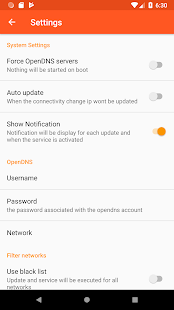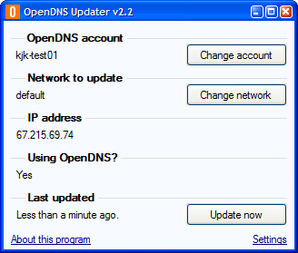

The latter method is advantageous because the EdgeRouter can cache the DNS information for the clients. If one client has previously resolved the IP address of a website, the next client will be able to access that IP slightly faster by resolving the address locally from the EdgeRouter rather than remotely from a global DNS server. Another benefit of using local DNS forwarding in EdgeOS is the option to resolve local hostnames easily when also using dnsmasq for DHCP. In this case, the DNS forwarding service is used and all client DNS requests are forwarded. Not to mention, we’re one of the world’s leading DNS service providers, meaning you’ll experience faster internet speeds as well. If you want your clients to directly query opendns then you would have to also specify this in the DHCP server configuration to push out to devices on your network. This works if you have the dns forwarder enabled but doesn't if you don't.
Local Provide clients the EdgeRouter's IP address as the DNS server. OpenDNS settings apply to every device laptops, smartphones, tablets, DVRs, game consoles, TVs, literally anything that connects to the internet from your home network. That only changes dns queries originating from the erx. In this case, the EdgeRouter's DNS forwarding service is not consulted. Global Provide clients global DNS server(s) using DHCP. There are two methods that can be used to provide DNS services to clients: The dnsmasq service runs in the background and will forward all client DNS queries to the specified DNS server(s). The EdgeRouter forwards the DNS request from the client to a public DNS server.ĮdgeOS includes a DNS forwarding service based on dnsmasq that is consulted when clients use the EdgeRouter as a DNS server. The latest EdgeOS firmware can be downloaded from the EdgeRouter Downloads page. Applicable to the latest EdgeOS firmware on all EdgeRouter models. When using HTTP proxy, the requests might come from a different computer, which will have a different IP address and OpenDNS service will not be able to apply your filtering settings. OpenDNS service recognizes your computer by IP address from which DNS requests are made and applies your filtering settings based on that information. This happens most often when you use an HTTP proxy. If you believe this IP address really belongs to you, you can contact support. If you're temporarily using someone else's network connection, you can ignore this error. If you use someone else's connection which is already configured to use the OpenDNS service, we then detect that more than one OpenDNS account claims to use the same IP address. Each OpenDNS user is uniquely identified by an IP address. public wireless hotspot, a friend's wireless network etc.). This happens most often when using someone else's network (e.g. Your IP address belongs to a different network #Opendns updater edgerouter how to
Only OpenDNS's servers know how to resolve this particular address so if we don't get the right response, we assume that OpenDNS service is not being used. Learn how to configure a computer to use OpenDNS service.įor technically minded: the program determines if your computer is using OpenDNS service by trying to resolve address using your DNS server.

Your computer or network is not configured to use OpenDNS service. This is a potential error that can be remedied by logging in again to the Dynamic IP Updater Client. On Windows, you're seeing the error message, "Your Authentication token is invalid."






 0 kommentar(er)
0 kommentar(er)
